I facilitated Gender and Sexuality workshops with Ethan, one of the three male counselors. During this workshop, we explained LGBTQ identity to 53 Nicaraguan girls attending Camp GLOW (Girls Leading Our World).
I’m the coordinator of STAR (Sexuality Training Awareness and Response), a volunteer LGBTQ support group that does safe zone trainings for Peace Corps staff (Both Nicaraguan and American) and volunteers.
The genderbread person is one of our favorite tools to use for our LGBTQ safe space trainings. Many people do not have the chance to talk about gender and sexuality in respectful, safe spaces, and these workshops address that need. During Camp GLOW, we talked witht he 53 girls about:
- Sex
- Gender
- Sexual Orientation
- Gender Expression
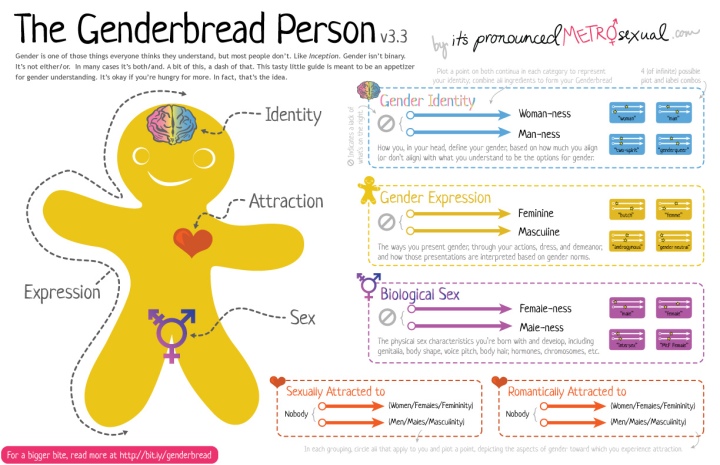
Ethan asked the girls: “Is there gender equality in Nicaragua and in the world?”
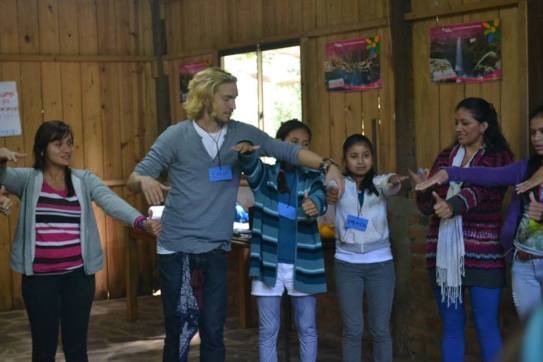
One camper said that there was gender equality in Nicaragua, but not in the world. She mentioned that in the middle east, women are still not allowed to do things that men can. This was interesting to me because in Nicaragua as in the United States, there are still some things men do that women can’t do. In Nicaragua, I cannot go for a walk without men making yelling lewd, sexual comments at me. Politics aside, in the United States, a woman cannot run for President without being overly criticized for her dress or family’s behavior (no matter if you root for Hilary Clinton or Sarah Palin).
Another girl said “There is gender equality, but that there is still room to grow. Some people still think that there are jobs that only men can do instead of women.” Her statement applied to places all over the world.
Ethan gave the girls different cards with either innate sexual characteristics, or with gender roles. The girls would place the card under one of two categories: men and women. Yes, it reinforced a gender binary, but we kept it simple to start with.
For example, one card said “breastfeeding”, and others said “crying”. Breastfeeding is a biological act that only women can perform. Crying is often assigned as an act that women mostly perform, due to societal stigma toward men showing emotion. From a young age, boys hear the saying that “boys don’t cry” because society encourages them to appear strong on the outside. Subjectively, crying is often seen as a form of weakness. Objectively, it is a natural form of emotional expression.
Girls placed the “breastfeeding” card under the “women” section, but put the “crying” card in the “neither” section they created on their own. Smart cookies!
Other cards included “wears earrings” and has “long hair.” The girls put these under the “women” section, but Ethan himself pointed out that although he identifies as heterosexual, he has relatively long hair for a man, and he wears earrings. The girls laughed because he broke the ice about his gender expression.
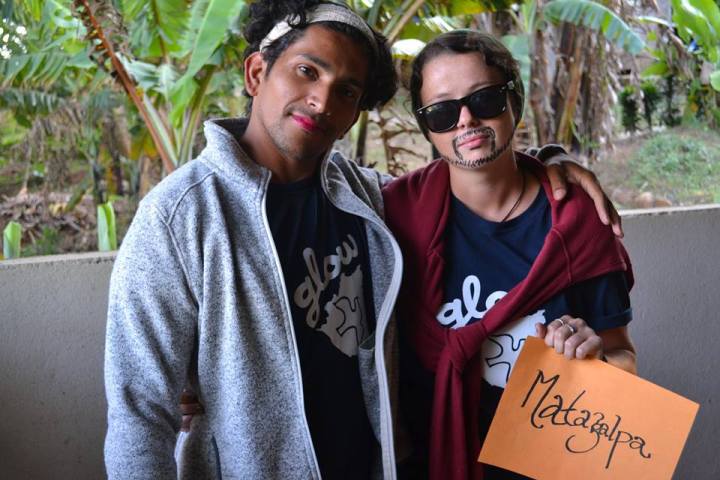
Then, Ethan had the girls place the cards under sections titled “gender” and “sex.” Some girls were still confused about the differences between sex and gender, but with practice, they learned that sex is biological and gender roles are learned.
He asked the girls to discuss misconceptions that people have about gender roles. Some of them said:
-
If a man wears tight clothing, then he must be gay.
-
Women cannot work outside.
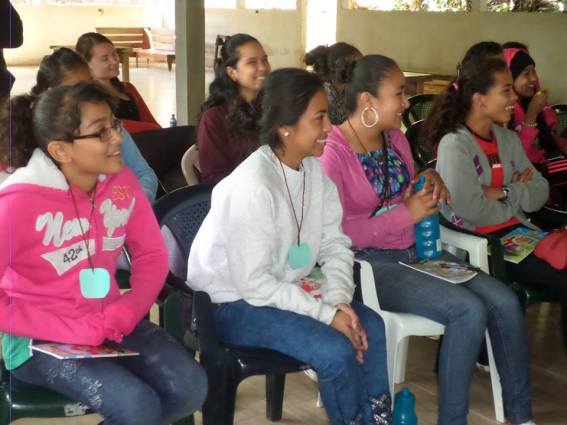
The first misconception would be addressed during the gender expression piece. Yericka, a girl from the neighboring department of Jinotega, addressed number two. “People say that women need to stay inside, and cook and clean. I’ve heard people say that women shouldn’t work outside and carry heavy things because they are weak. That’s not true. I have seen women carrying huge bags of coffee on their backs, and…they can do it!” She nodded while wrinkling her nose, as if realizing that women can do so much more than they are told they can do.
Ethan then explained sexual orientation. If a woman likes a man, what is she called? “Heterosexual”, a few girls shared, after a pause. If a woman likes another woman, what is she called? Cochona I heard a girl whisper. Cochon and cochona are offensive, derogatory terms that most people use to refer to gay people. I knew she didn’t mean to be offensive, so I explained that when referring to queer people, language matters.
I shared a story of how I explained to a young boy on Corn Island that I preferred being called a lesbiana instead of a cochona, because the latter term is disrespectful. I have met people here who throw around the term “cochon” until I come out to them and calmly explain that that term is hurtful to me. I’ve come out to a lot of people in Nicaragua, because strangers often ask me if I am married or if I have a boyfriend. It’s a typical conversation starter here, but usually the conversation pushes people to assume that not everyone is straight.
Not everyone is straight, and not everyone identifies strictly as cisgender men or women. Some people identify as transgender or gender queer. Ethan explained that gender expression means how people express their gender in fluid ways. Some days, a woman may feel like wearing a dress, or she may feel like wearing a bow tie. Her gender expression is how she chooses to present herself to the world. I, for one, definitely wear more dresses in Nicaragua because it’s hotter. I enjoy alternating between being feminine and masculine presenting, but I still identify as a cisgender lesbian.
The girls were overwhelmed with all of the new terms, but we reassured them that the most important take away for you to have from this workshop is to be open and respectful to everyone, no matter their gender identity or sexual orientation.
One camper asked “How can I support friends who are questioning their sexuality?”
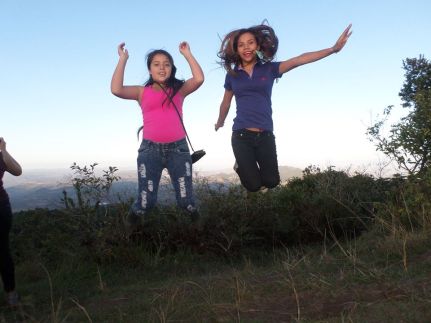
I said “you are already doing the right thing, just for being there for them and for listening to them. It’s okay if you don’t know exactly what to say to them or if you have the answers, but just listening and being open to them is so important.”
Ethan and I led this workshop for an older group of girls from ages 15-17, then led another group aged 12-14. The younger group was much quieter than the older group.They opened up at the end, when we offered to answer their questions. This is when the magic happened.
One girl asked “ What is a person called when they are born with two organs?” We answered: “intersex”.
Just when I thought the girls were too shy or tired to ask, one of them piped up: “So, we can ask anything?” My most memorable part of camp GLOW, and of 2016, was when the girls asked me about my experience as a queer woman. The girls asked me very personal questions, including:
Q. How old were you when you realized you were gay?
Q. What was your first relationship with a woman like?
Q. What’s been the hardest part of being gay for you?
Q. How did your friends react when you were gay?
I shared that I didn’t come out of the closet until I was 19, and that I waited so long because I was afraid. I was afraid of being rejected by my friends and family, and I was afraid of being different. I grew up in a Catholic, Mexican family, where gay people were referred to as maricones, and I did’t feel safe coming out until college. My friends in college were only disappointed with me, if at all, because I didn’t trust them enough to come out to them.
I shared that in all of my relationships, one challenge has been that I haven’t been accepted by my any of my ex girlfriends’ families. They either didn’t know I was dating their daughters, or I was not welcome because their daughter was in a same sex relationship with me.
“I’m surprised. This is the first time I’ve been around a gay person” one camper said to me. Other campers said “there are two gay people in my neighborhood!” or “There are four in mine!”
Playfully, I said “That’s what you think. We are everywhere, we just don’t always feel safe coming out. Some people don’t come out until they are grandparents. It took me 19 years, but I hope it doesn’t take anyone else that long to be themselves.”
Throughout the workshop, Ethan emphasized that being LGBTQ may not be common, but that doesn’t mean it’s not normal. The girls really responded well to this LGBTQ workshop, and many of them came up to me later to tell me how much they learned from it.

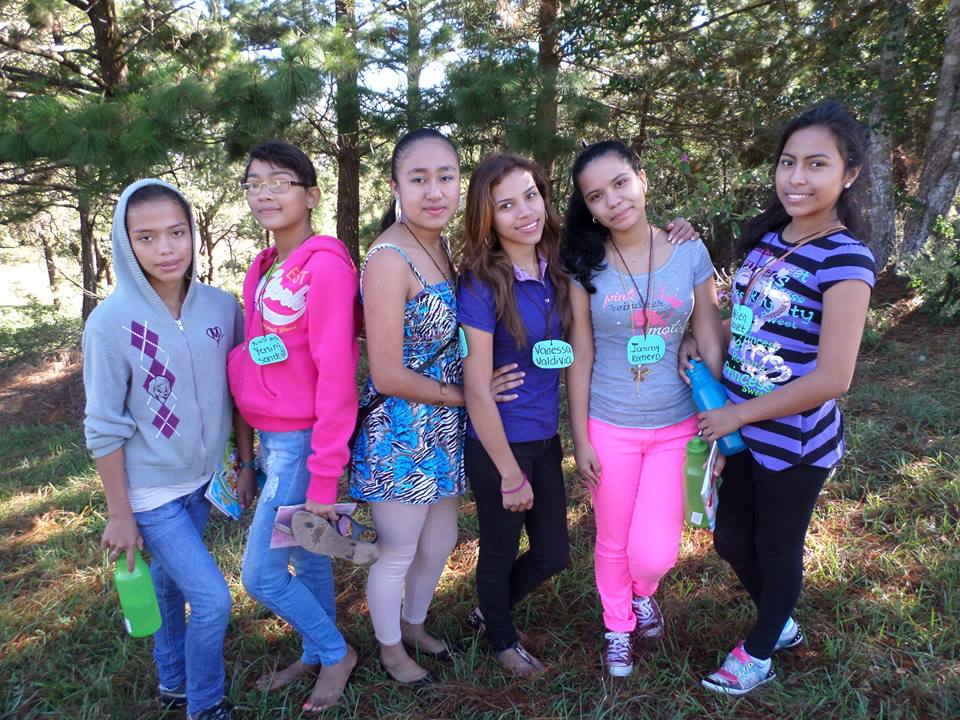
2 thoughts on “Camp GLOW 2016: Learning about LGBTQ Identity”